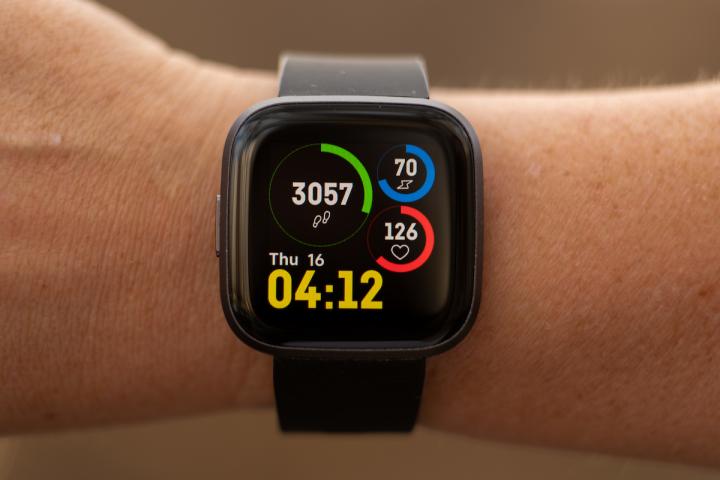Even far eclipsing 10K steps didn’t prevent weight gain for college freshmen studied

Credit: BYU Photo
For years now, 10,000 steps a day has become the gold standard for people trying to improve their health — and recent research shows some benefits can come from even just 7,500 steps. But if you’re trying to prevent weight gain, a new Brigham Young University study suggests no number of steps alone will do the trick.
Researchers from BYU’s Exercise Science Department, along with colleagues from the Nutrition, Dietetics & Food Science Department, studied 120 freshmen over their first six months of college as they participated in a step-counting experiment. Participants walked either 10,000, 12,500 or 15,000 steps a day, six days a week for 24 weeks, while researchers tracked their caloric intake and weight.
The goal of the study was to evaluate if progressively exceeding the recommended step count of 10,000 steps per day (in 25% increments) would minimize weight and fat gain in college freshmen students. In the end, it didn’t matter if the students walked more than even 15,000 steps; they still gained weight. Students in the study gained on average about 1.5 kg (roughly 3.5 lbs.) over the study period; a 1 to 4 kg average weight gain is commonly observed during the first academic year of college, according to previous studies.
“Exercise alone is not always the most effective way to lose weight,” said lead author Bruce Bailey, professor of exercise science at BYU. “If you track steps, it might have a benefit in increasing physical activity, but our study showed it won’t translate into maintaining weight or preventing weight gain.”
Study subjects wore pedometers 24 hours a day for the six-week study window. On average, students walked approximately 9,600 steps per day prior to the study. By the end of the study, the participants in the 10,000-step group averaged 11,066 steps, those in the 12,500-step group averaged 13,638 steps and those in the 15,000-step group averaged 14,557 steps a day.
Although weight was not affected by the increased steps, there was a positive impact on physical activity patterns, which “may have other emotional and health benefits,” study authors said. One positive, if not unsurprising, outcome of the study was that sedentary time was drastically reduced in both the 12,500- and 15,000-step groups. In the 15,000-step group, sedentary time decreased by as much as 77 minutes a day.
“The biggest benefit of step recommendations is getting people out of a sedentary lifestyle,” Bailey. “Even though it won’t prevent weight gain on its own, more steps is always better for you.”
###
BYU professors James LeCheminant and Larry Tucker were also authors on the study, which published in the Journal of Obesity. BYU students Ciera Bartholomew, Caleb Summerhays, Landon Deru, Sharla Compton and Joseph Hicks were also authors.
Media Contact
Todd Hollingshead
[email protected]
801-422-8373
Original Source
https:/
Related Journal Article
http://dx.




